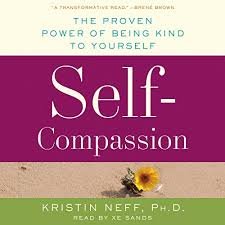New Year’s Resolutions
From Fixing to Caring
As the confetti settles and the new year begins, many of us are greeted by a familiar ritual: setting resolutions. The promise of a fresh start can feel invigorating—until it doesn’t. For some, New Year’s resolutions can quickly transform from hopeful goals into overwhelming expectations, fueled by an underlying pressure to measure up or prove one’s worth.
If this resonates with you, you’re not alone. Our culture’s obsession with productivity often teaches us that our value is tied to what we achieve. The new year can feel less like a blank slate and more like a performance review—one where you’re both the boss and the employee under scrutiny.
What if, this year we approached things differently?
A Culture of Productivity and Its Impact
We live in a culture deeply rooted in the belief that our worth is tied to our productivity. Messages like “New year, new you!” flood social media and advertising, subtly suggesting that who you are right now isn’t enough. This relentless focus on doing more—working harder, achieving faster—often ignores the emotional toll it takes on our well-being.
Instead of feeling motivated, many people find themselves trapped in an exhausting cycle of striving without rest. This cycle not only drains your energy but reinforces the idea that your value depends on how much you accomplish, leaving little room for rest, joy, or self-compassion.
How to Take the Pressure Off: Self-Compassion and Pacing
What if you gave yourself permission to opt out of the resolution rat race? Or at least redefined it in a way that feels kind and sustainable? Here are a few ideas to approach the new year with more self-compassion:
1. Shift the Focus from Outcomes to Intentions
Instead of setting rigid goals, focus on how you want to feel or who you want to be this year. For example:
“I want to feel more grounded and connected to myself.”
“I want to cultivate joy in small, everyday moments.”
This approach takes the pressure off measurable outcomes and centers your values instead.
2. Take Small, Gentle Steps
Rather than overhauling your life in one giant leap, break your intentions into manageable steps. If your goal is to prioritize self-care, start with something simple like setting aside 10 minutes a day to practice yoga or journal. Small steps are easier to sustain—and they build momentum over time.
3. Practice Self-Compassion
Dr. Kristin Neff, in her book Self-Compassion: The Proven Power of Being Kind to Yourself, reminds us that this cycle can be broken—not by pushing harder, but by treating ourselves with the same kindness we’d offer a friend. Instead of focusing on what we haven’t accomplished, self-compassion invites us to recognize our inherent worth, honor our efforts, and make space for rest without guilt. By stepping away from the productivity trap and cultivating self-compassion, we can begin to free ourselves from the exhausting need to constantly prove our value. Below are some examples to further explain this idea:
When the inner critic starts pointing out your “failures,” meet them with kindness. Remind yourself:
It’s okay to rest.
You are enough, just as you are.
4. Redefine Success
What if success wasn’t about achieving more, but about feeling more aligned with your needs? This might mean setting boundaries, saying no to extra commitments, or simply letting yourself enjoy the present moment without worrying about productivity.
A New Kind of Resolution
This year, consider ditching the pressure to “fix” yourself and embracing a resolution to care for yourself instead. Whether that means resting, slowing down, or celebrating the small wins, know that you don’t have to prove your worth—it’s already there, exactly as you are.
Here are resources for further reading:
Burnout: The Secret to Unlocking the Stress Cycle by Emily and Amelia Nagoski
This book offers science-backed strategies to help women manage stress, complete the stress cycle, and break free from societal pressures that lead to burnout, empowering them to care for their emotional and physical well-being (click image for link).
Disclaimer: The content provided on this blog is for informational and educational purposes only and is not a substitute for professional mental health advice, diagnosis, or treatment. While I aim to provide helpful and accurate insights, this blog does not establish a therapeutic relationship or constitute personalized advice. Always consult with a licensed therapist or healthcare provider regarding your unique situation before implementing any suggestions shared in this blog.





